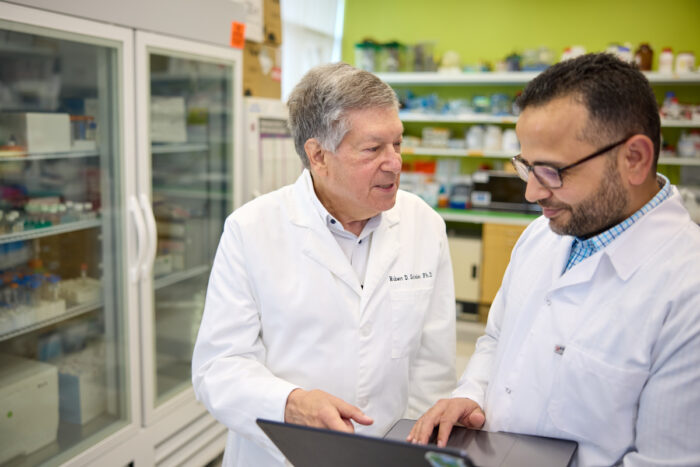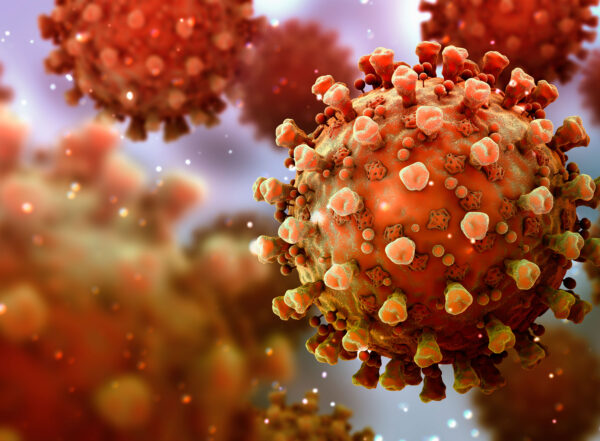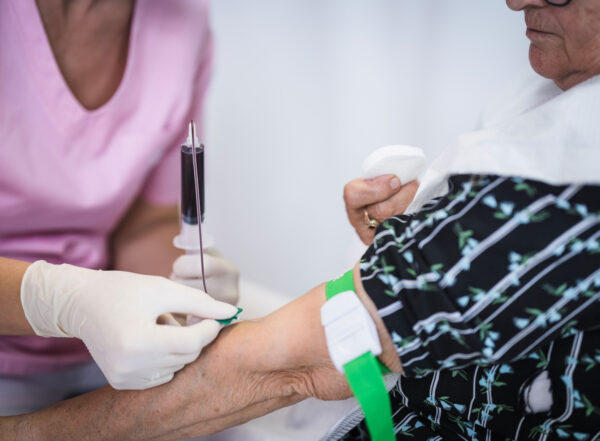Drug bypasses suppressive immune cells to unleash immunotherapy
Mouse study addresses problem of immune system self-sabotaging cancer treatments
 Matt Miller
Matt MillerImmunobiologists Robert Schreiber, PhD, (left) and Hussein Sultan, PhD, of Washington University School of Medicine in St. Louis, found that a subset of immune cells that normally puts the brakes on the immune system to prevent it from attacking the body’s healthy cells inadvertently also dampens cancer immunotherapy.
By recruiting the immune system to combat tumor cells, immunotherapy has improved survival rates, offering hope to millions of cancer patients. However, only about one in five people responds favorably to these treatments.
With a goal of understanding and addressing immunotherapy’s limitations, researchers at Washington University School of Medicine in St Louis have found that the immune system can be its own worst enemy in the fight against cancer. In a new study in mice, a subset of immune cells – type 1 regulatory T cells, or Tr1 cells – did its normal job of preventing the immune system from overreacting but did so while inadvertently restraining immunotherapy’s cancer-fighting power.
“Tr1 cells were found to be a heretofore unrecognized obstacle to immunotherapy’s effectiveness against cancer,” said senior author Robert D. Schreiber, PhD, the Andrew M. and Jane M. Bursky Distinguished Professor in the Department of Pathology & Immunology, and director of the Bursky Center for Human Immunology & Immunotherapy at Washington University School of Medicine. “By removing or circumventing that barrier in mice, we successfully reenergized the immune system’s cancer-fighting cells and uncovered an opportunity to expand the benefits of immunotherapy for more cancer patients.”
The study is available in Nature.
Cancer vaccines represent a new approach to personalize cancer immunotherapy. Aimed at the mutant proteins specific to a patient’s tumor, such vaccines induce killer T cells to attack tumor cells while leaving healthy cells unharmed. Schreiber’s group previously showed that more effective vaccines also activate helper T cells, another immune cell type, that recruit and expand additional killer T cells to destroy the tumors. But when they tried to add increased amounts of the helper T cell target to supercharge the vaccine they found they generated a different type of T cell that inhibited rather than promoted tumor rejection.
“We tested the hypothesis that by increasing helper T cell activation we would induce enhanced elimination of the sarcoma tumors in mice,” said first author Hussein Sultan, PhD, an instructor in pathology & immunology. So he injected groups of tumor bearing mice with vaccines that activated killer T cells equally while triggering a different degree of helper T cell activation.
Much to the researchers’ surprise in this latest study, the vaccine meant to hyperactivate helper T cells produced the opposite effect and inhibited tumor rejection.
“We thought that more helper T cell activation would optimize elimination of the sarcoma tumors in mice,” Sultan said. “Instead, we found that vaccines containing high doses of helper T cell targets induced inhibitory Tr1 cells that completely blocked tumor elimination. We know that Tr1 cells normally control an overactive immune system, but this is the first time they have been shown to dampen its fight against cancer.”
Tr1 cells normally put the brakes on the immune system to prevent it from attacking the body’s healthy cells. But their role in cancer has not been seriously explored. Looking through previously published data, the researchers found that tumors from patients who had responded poorly to immunotherapy had more Tr1 cells compared with tumors of patients who had responded well. The number of Tr1 cells also increased in mice as tumors grew bigger, rendering the mice insensitive to immunotherapy.
To bypass the inhibiting cells, the researchers treated the vaccinated mice with a drug that enhances killer T cells’ fighting power. The drug, developed by biotechnology startup Asher Biotherapeutics, carries modifications in the immune-boosting protein called interleukin 2 (IL-2) that specifically revs up killer T cells and reduces the toxicity of unmodified IL-2 treatments. The additional boost from the drug overcame Tr1 cells’ inhibition and rendered the immunotherapy more effective.
“We are committed to personalizing immunotherapy and broadening its effectiveness,” said Schreiber. “Decades of researching basic tumor immunology have expanded our understanding of how to trigger the immune system to achieve the most robust antitumor response. This new study adds to our understanding of how to improve immunotherapy to benefit more people.”
As co-founder of Asher Biotherapeutics – which provided the mouse version of the modified IL-2 drugs – Schreiber is indirectly involved in the company’s clinical trials testing the human version of the drug as a monotherapy in cancer patients. If successful, the drug has the potential to be tested in combination with cancer treatment vaccines.






